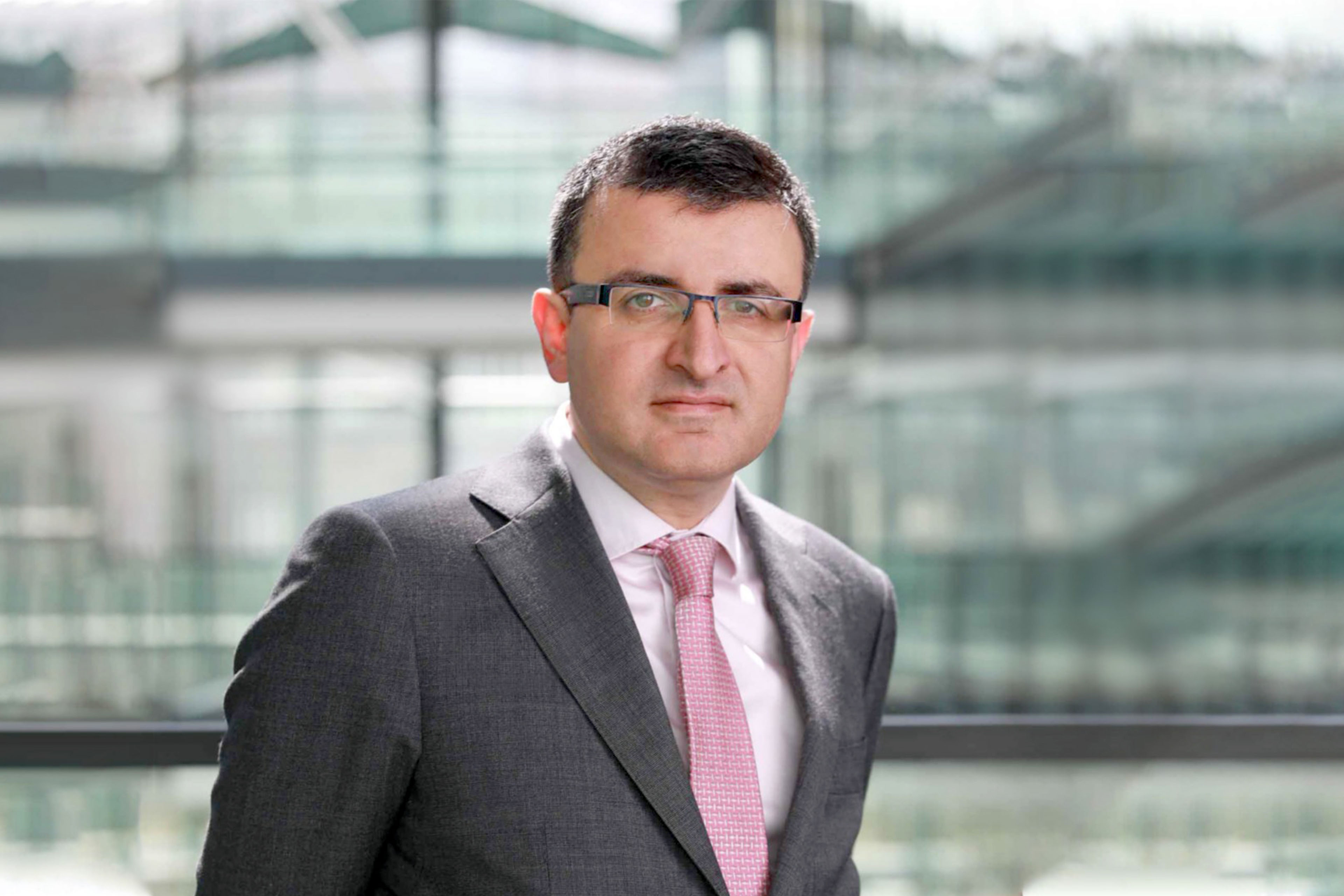EY refers to the global organization, and may refer to one or more, of the member firms of Ernst & Young Global Limited, each of which is a separate legal entity. Ernst & Young Global Limited, a UK company limited by guarantee, does not provide services to clients.
Challenging conditions put corporate integrity standards at risk in emerging markets
- EY Global Integrity Report shows growing pressures on ethical conduct in emerging markets
- 62% of respondents believe it is challenging for organizations to maintain integrity standards in tough economic conditions
- Worsening market conditions (36%) and declining financial performance (31%) top risks to ethical conduct in emerging markets
Corporate integrity standards in emerging markets are at risk from a series of new pressures on businesses, according to the 2022 EY Global Integrity Report - Emerging Markets Perspective: “Is your organization upholding its integrity standards?”
The report canvassed the views of more than 2,750 employees, managers, and board directors from 33 emerging markets and found that the current geopolitical and economic environment — in the aftermath of the COVID-19 pandemic — poses a significant threat to ethical business conduct.
Sixty-two percent of respondents say that it is challenging for organizations to maintain standards of integrity in periods of rapid change or difficult market conditions, and nearly half of respondents (46%) say that the impact of the pandemic has made it harder to act with integrity.
Specifically, the greatest risks to ethical conduct resulting from the pandemic are worsening market conditions (36%), declining financial performance (31%) and reductions in employee compensation (29%).
Arpinder Singh, EY Global Markets and India Leader, Forensic & Integrity Services, says:
“Organizations are facing many challenges at the moment, which have heightened the risk of unethical behavior. Growing geopolitical tensions, supply chain disruption and recent inflationary pressures have hit businesses in emerging markets across the world just as they seek to recover from a global pandemic that is yet to run its course.”
The findings also show that an increasing number of employees would be willing to compromise ethical standards for their own benefit. More than half of board members (52%) and nearly half of senior managers (47%) surveyed in the emerging markets agree that there are managers within their organization who would sacrifice integrity for short-term financial gain.
In addition, 13% of board member respondents and 14% of senior manager respondents admit they would offer or accept a bribe, while 14% and 12% respectively, would falsify financial records, compared to just 4% of other employee respondents.
Singh says: “It’s important to recognize that it is people — not systems and processes — that commit fraud. Employees will be more likely to behave with integrity if they understand why and how the business does things, instead of simply being expected to follow the rules. Especially against today’s backdrop of economic challenges, those at the top need to set a strong example of ethical conduct for employees to follow. If they do not, it is likely we will see a continued rise in the number of reported fraud incidents and interventions from regulators.”
The findings also suggest that emerging markets need to encourage a stronger culture of speaking up among staff. While 39% of respondents say it has become easier for employees to report concerns, 36% admit they have had concerns that they have chosen not to report.
In addition, nearly one-third of respondents (31%) say that they don’t report wrongdoing because they fear for their personal safety. These security concerns are particularly high in Kenya (50%), Nigeria (48%), South Africa (41%) and India (41%).
Singh says: “Employees can play a pivotal role in identifying and reporting wrongdoing, but the survey shows that many do not feel comfortable or safe doing so. It should be a priority for all leaders to ensure that employees do feel they can call out wrongdoing and that whistleblowing and accountability are part of the cultural fabric of their organizations.”
Despite the concerns highlighted about the current pressures on ethical conduct, the survey demonstrates that strong progress has been made in emerging markets. Almost all respondents (97%) agree that corporate integrity is important and nearly half (47%) believe that corporate integrity standards have improved within their organizations over the past two years. A similar number (45%) say they have regular training on relevant legal, regulatory, or professional requirements – up from 39% in 2020. And nearly one-third (31%) of respondents say they have incentives in place to encourage behaviors that demonstrate integrity.
Singh says: “Creating a culture where ethical behavior is supported and rewarded can help reduce regulatory risk, improve employee morale, and build stakeholder confidence in a company’s ability to deliver on its promises.
“Consumers, regulators and investors demand transparency, and want to see clear improvements, so emerging market business leaders need to stay vigilant and take action on corporate integrity. In doing so they will help deliver both short- and long-term value to all stakeholders.”
For more information visit: ey.com/emergingmarketsreport2022
-ends-
Notes to editors
About EY
EY exists to build a better working world, helping create long-term value for clients, people and society and build trust in the capital markets.
Enabled by data and technology, diverse EY teams in over 150 countries provide trust through assurance and help clients grow, transform and operate.
Working across assurance, consulting, law, strategy, tax and transactions, EY teams ask better questions to find new answers for the complex issues facing our world today.
EY refers to the global organization, and may refer to one or more, of the member firms of Ernst & Young Global Limited, each of which is a separate legal entity. Ernst & Young Global Limited, a UK company limited by guarantee, does not provide services to clients. Information about how EY collects and uses personal data and a description of the rights individuals have under data protection legislation are available via ey.com/privacy. EY member firms do not practice law where prohibited by local laws. For more information about our organization, please visit ey.com.
This news release has been issued by EYGM Limited, a member of the global EY organization that also does not provide any services to clients.
About EY Forensic & Integrity Services
Embedding integrity into an organization’s strategic vision and day-to-day operations is critical when managing complex issues of fraud, regulatory compliance, investigations and business disputes. Our international team of more than 4,000 forensic and technology professionals helps leaders balance business objectives and risks, build data-centric ethics and compliance programs, and ultimately develop a culture of integrity. We consider your distinct circumstances and needs to assemble the right multidisciplinary and culturally aligned team for you and your legal advisors. We strive to bring you the benefits of our leading technology, deep subject-matter knowledge and broad global sector experience.
About the survey
Between June and September 2021, researchers — the global market research agency Ipsos MORI — conducted 2,756 surveys in the local language with board members, senior managers, managers and employees in a sample of the largest organizations and public bodies in 33 emerging markets.
The countries covered in the report are Argentina, Brazil, Chile, Colombia, Mexico, Peru, Lithuania, Latvia, Estonia, Czech Republic, Hungary, Poland, Romania, Russia, Serbia, Slovakia, Ukraine, India, Israel, Kenya, Nigeria, Saudi Arabia, South Africa, Turkey, United Arab Emirates, China, Hong Kong, Malaysia, Singapore, South Korea, Taiwan, Thailand and Vietnam.
Related news
Challenging conditions put corporate integrity standards at risk in emerging markets
LONDON, 20 SEPTEMBER 2022. Corporate integrity standards in emerging markets are at risk from a series of new pressures on businesses, according to the 2022 EY Global Integrity Report - Emerging Markets Perspective: “Is your organization upholding its integrity standards?”
Janet Truncale selected as next EY Global Chair and CEO; effective July 1, 2024
LONDON, 15 November 2023. EY today announces that Janet Truncale has been elected the next EY Global Chair and CEO, effective from 1 July 2024.
LONDON, 30 AUGUST 2023. The EY organization today announces an expansion of its collaboration with Microsoft, as the EY organization completes the first 12 months of a four-year investment of more than US$1b to deliver its next generation Assurance technology platform.





